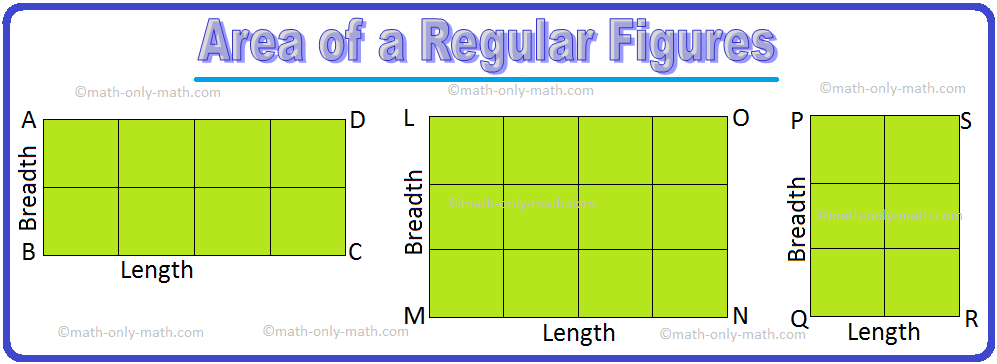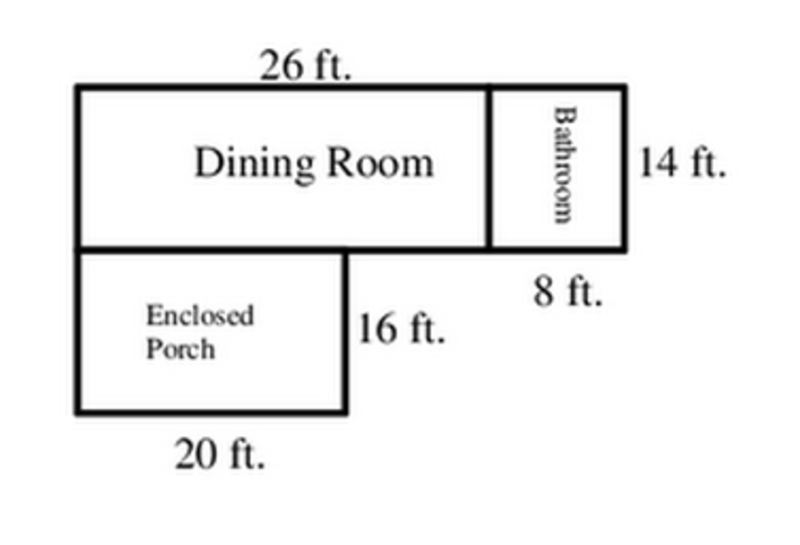
#AREA OF A RECTANGLE PLUS#
This tells us that, for any pair of coordinates, 𝑥 one, 𝑦 one and 𝑥 two, 𝑦 two, the distance can be found by the square root of 𝑥 two minus 𝑥 one all squared plus 𝑦 two minus 𝑦 one all squared. This is the diagonal of the rectangle going from 𝐴 to 𝐶.Īs we know the coordinate values for vertices 𝐴 and 𝐶, we can recall the formula for the distance between two points. Now that we’ve found the coordinate values of all four vertices, let’s see if we can find the length of this line segment 𝐴𝐶. So the coordinate of 𝐵 must be zero, five. Therefore, the 𝑥-coordinate will be zero, and the 𝑦-value will be the same as that of 𝐵. We can alternatively think of this that the line segment 𝑂𝐴 must be 12 units long.

We can see that point 𝐴 sits on the 𝑥-axis, so the 𝑦-value will be zero. We know that 𝐵 lies at 12 on the 𝑥-axis, and therefore 𝐴 must also lie at 12 on the 𝑥-axis. So let’s look at this vertex 𝐴 in relation to 𝐵. And we can be sure that 𝑂𝐶 and 𝐴𝐵 will be vertical lines. So we’ll have right angles at angles 𝑂, 𝐴, 𝐵, and 𝐶. We must remember that the definition of a rectangle is that all interior angles are 90 degrees. And so the line 𝐵𝐶 must also be a horizontal line. We know that the line 𝑂𝐴 lies on the 𝑥-axis, which is a horizontal line. This other important piece of information that 𝐵 is at 12, five will help us work out the coordinates of vertices 𝐴 and 𝐶. So in order to answer this question, we’ll need to look a little bit more closely at the vertices.įirstly, this vertex of 𝑂 must be the coordinate or ordered pair of zero, zero. We might notice that we’re not given any lengths in this diagram.


In this question, we can see this rectangle 𝐴𝐵𝐶𝑂 and we need to find a length and the area. Given that 𝐴𝐵𝐶𝑂 is a rectangle, find the length of line segment 𝐴𝐶 and the area of the rectangle.


 0 kommentar(er)
0 kommentar(er)
